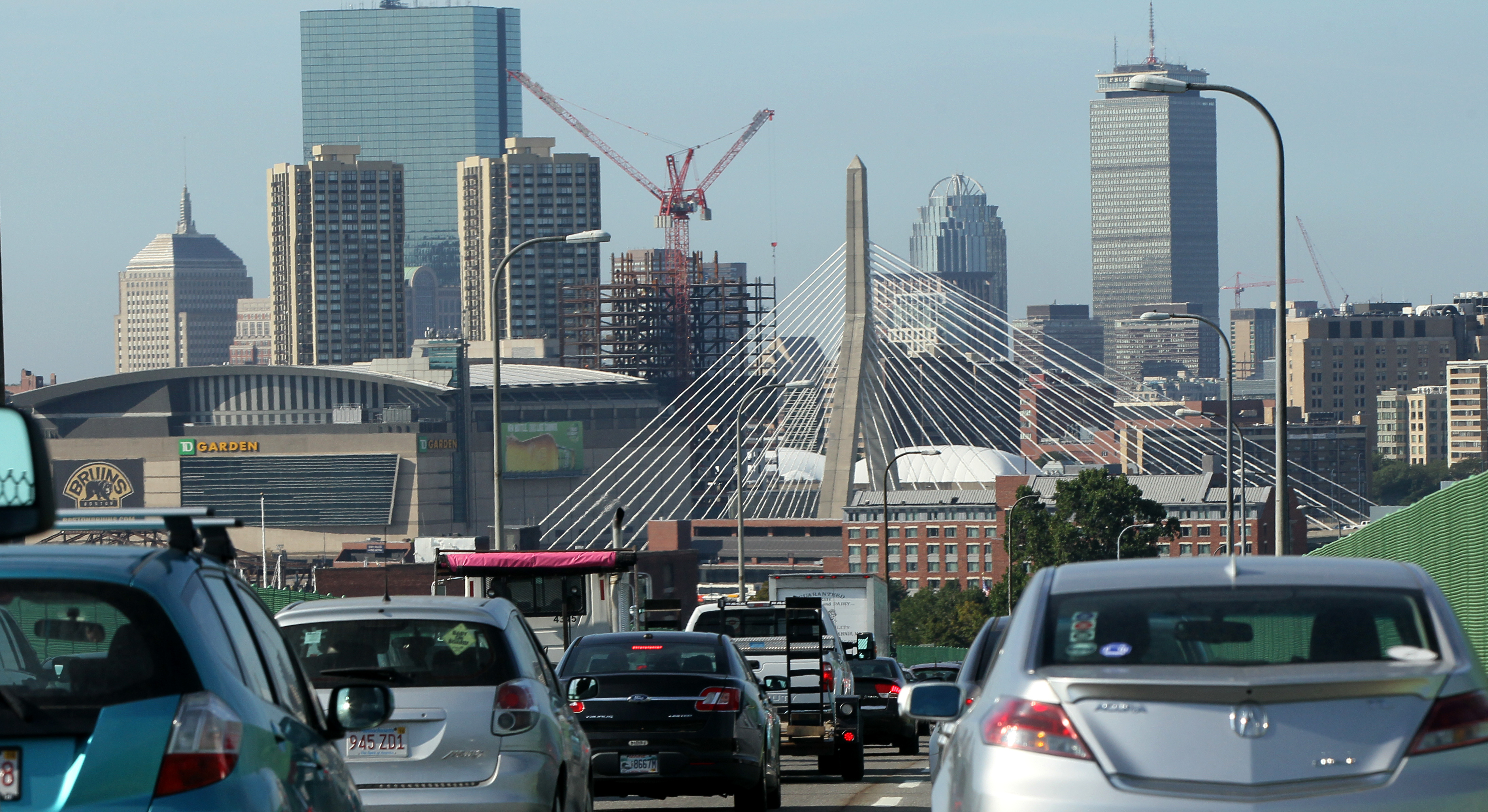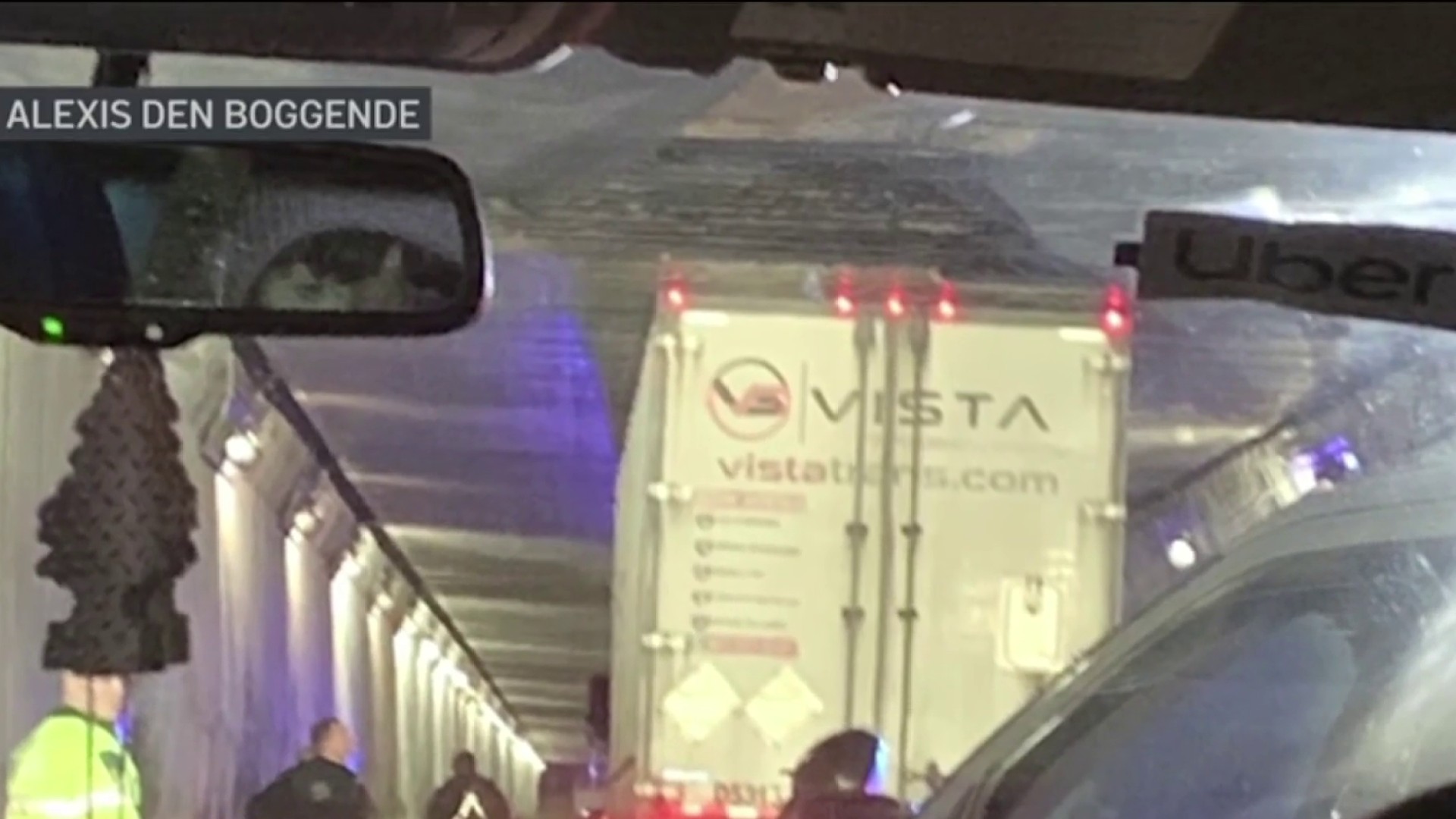Traffic is back in Boston, alright.
The Massachusetts Department of Transportation says 95% of all drivers are now on the roads, which means that on any given day there are roughly 750,000 people commuting into the city.
WATCH ANYTIME FOR FREE
>Stream NBC10 Boston news for free, 24/7, wherever you are. |
But since the pandemic, Highway Administrator Jonathan Gulliver said, we're seeing shifts in when, where and who is commuting.
"Mondays are about the lightest days. Tuesday, Wednesday and Thursday are by far the heaviest. Friday morning is very light," Gulliver said.
Get updates on what's happening in Boston to your inbox. Sign up for our >News Headlines newsletter.
Mark Van Der Hyde is one of the many people who are now able to work from home on the bookends of the weekend. But when he does have to drive into to Boston from Dracut mid-week, he expects bumper-to-bumper traffic.
"I guess I'm just resigned to the fact that we're sitting in traffic for like one to two hours in the morning," Van Der Hyde said.
On MassDOT's Dashboard, the average time for someone like Mark to come down Interstate 93 on a Monday morning at 8 a.m. is 54 minutes. But on a Tuesday, it's 67 minutes.
It's even worse if you're heading in from the South Shore. The average on the Expressway on Mondays at 8 a.m. is 56 minutes, but at the same time on Wednesdays, you're crawling in at 83 minutes.
Even the actual rush hours have changed.
Take Route 3 north from Weymouth. In 2019, it would often peak at 5 a.m. and stay steady until around 9 a.m. At the same time last November, the duration of the worst traffic was cut in half, from 5 a.m. until 7 a.m.
But that's the same number of cars in a shorter span of time, which equals more brake lights.
Get updates on what's happening in Boston to your inbox. Sign up for our News Headlines newsletter.
What has also changed is where people are commuting from.
"The Turnpike was the first roadway to drop off during the pandemic, and it was the last one to really recover," Gulliver said.
He noted that the number of cars on the Mass. Pike heading into Boston dropped anywhere from 17 to 20%, depending on the day, last year compared to 2019.
"The people coming in from the west generally have types of jobs where they have those opportunities where they can work remotely," Gulliver said.
That helps drivers on I-95 south from the Mass. Pike to Route 3, where the commute times are down 31%. But the time it takes to make the commute on the Expressway from the Braintree split to Mass. Ave. has increased by nearly 30%.
The new breed of flexible workers also means that sometimes you'll run into traffic in the middle of the day.
"They now work from home in the morning and they come into the office in the afternoon. So they're coming in midday and your midday trip is a little bit busier than it used to be," Gulliver said.
Small business owner Art DiGioia watches NBC10 Boston every morning to decide how he'll be tackling his day.
"Basically, I take a look at what's happening and where I need to be," he said.
So if there's a crash that will upend his commute, he'll consider rescheduling a meeting or just take it virtually.
"My travel time today was going from my bedroom into the kitchen," DiGioia joked.
The pandemic also prompted companies to go fully remote. For workers like Kara Sassone, it means she has put the stress of a commute in the rearview mirror.
"A simple crash, a fender bender can really derail any schedule," she said.
She's gone from rushing to make sure she could pick up her children on time to a new kind of commute: walking them to school.



